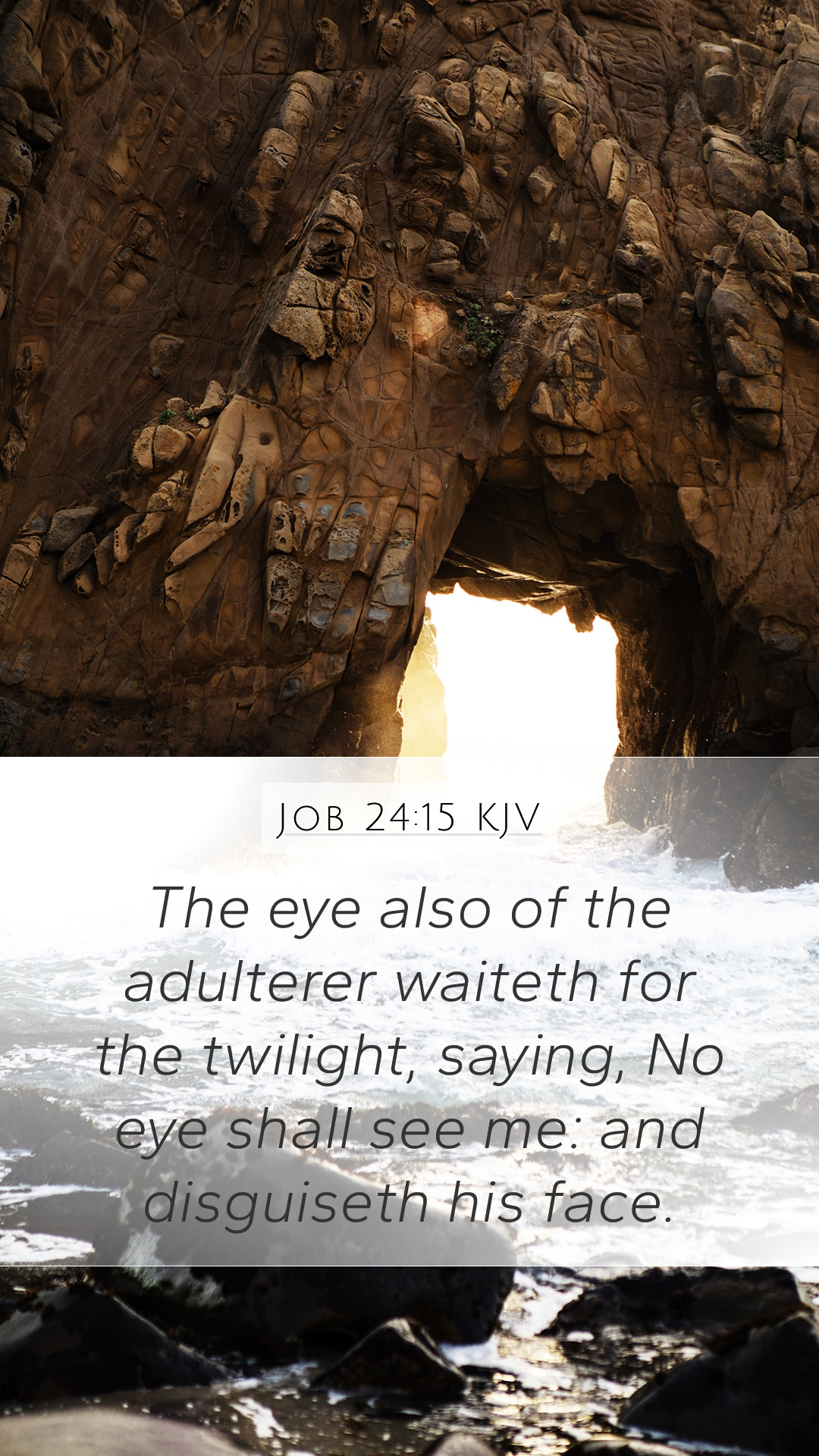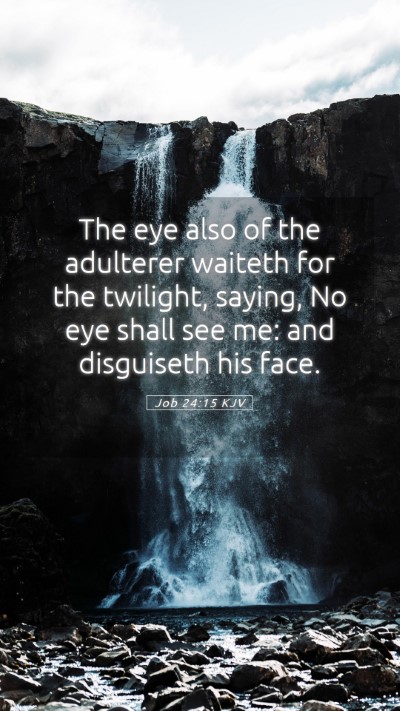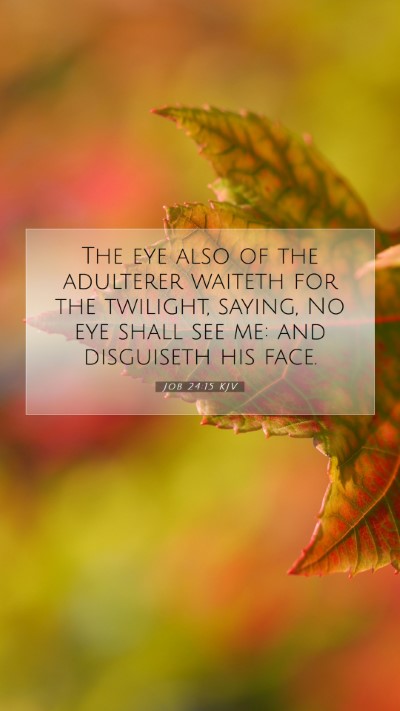Old Testament
Genesis Exodus Leviticus Numbers Deuteronomy Joshua Judges Ruth 1 Samuel 2 Samuel 1 Kings 2 Kings 1 Chronicles 2 Chronicles Ezra Nehemiah Esther Job Psalms Proverbs Ecclesiastes Song of Solomon Isaiah Jeremiah Lamentations Ezekiel Daniel Hosea Joel Amos Obadiah Jonah Micah Nahum Habakkuk Zephaniah Haggai Zechariah MalachiJob 24:15 Meaning
What is the meaning of Job 24:15?
The eye also of the adulterer waiteth for the twilight, saying, No eye shall see me: and disguiseth his face.
Job 24:15 Bible Verse Meaning
Understanding Job 24:15
In Job 24:15, the verse states: "The eye of the adulterer waits for the twilight, saying, 'No eye will see me'; and he disguises his face." This verse presents a powerful illustration of the wickedness and secretive nature of sinful behavior. A comprehensive understanding of this verse can be greatly enriched by examining insights from notable public domain commentaries including those of Matthew Henry, Albert Barnes, and Adam Clarke.
Verse Context and Setting
The Book of Job deals heavily with the themes of suffering and divine justice. Job, a man of faith, faces immense trials and questions the reasons behind the suffering of the righteous and the prosperity of the wicked. In this context, Job 24 presents a discourse on the behavior of the wicked, emphasizing their cunning and deception.
Commentary Insights
-
Matthew Henry:
Henry emphasizes the moral depravity of those who commit adultery, highlighting the concept of secret sin. He observes how the "eye of the adulterer" metaphorically represents their watchfulness and anticipation before indulging in sin, reflecting a desire to avoid detection. This underscores the inherent fear of judgment that accompanies wrongful actions.
-
Albert Barnes:
Barnes focuses on the psychological aspect of sin, explaining that the wicked often believe they can escape the consequences of their actions by hiding from God and others. He notes that the "twilight" symbolizes a time of moral ambiguity, where individuals might feel a false sense of security in their transgressions.
-
Adam Clarke:
Clarke elaborates on the theme of disguising one's true nature. He points out that sinners often cloak their intentions and actions, aligning with the greater narrative of Job's discussions on injustice in the world. His commentary suggests that this behavior reflects a deeper spiritual blindness and lack of awareness of God’s omnipresence.
Key Themes and Applications
The verse invites readers to consider significant themes such as:
- Deception: The nature of sin often involves subterfuge and the attempt to hide from both human and divine oversight.
- Moral Vigilance: Individuals are encouraged to remain vigilant against temptations, acknowledging that the cloak of darkness can lead to a false sense of security.
- Divine Justice: Ultimately, the verse raises questions about accountability and the eventual exposure of wrongdoing in the light of God's judgment.
Cross References
Related verses that enrich the understanding of Job 24:15 include:
- Proverbs 5:3-6: A warning against the peril of the adulterous woman.
- Ecclesiastes 12:14: For God will bring every deed into judgment.
- Romans 2:16: God will judge the secrets of men through Christ.
Conclusion
In summary, Job 24:15 serves as a poignant reminder of the human tendency toward sin and the intricate dynamics of morality and justice. Through careful examination of commentary insights and relevant themes, one gains a deeper understanding of this scripture. Engaging in Bible study insights and utilizing Bible study tools can further enhance comprehension, helping believers apply these lessons to their lives. Exploring such Bible verse interpretations can drive meaningful discussions in Bible study groups and facilitate a more profound appreciation of the underlying truths in Scripture.


